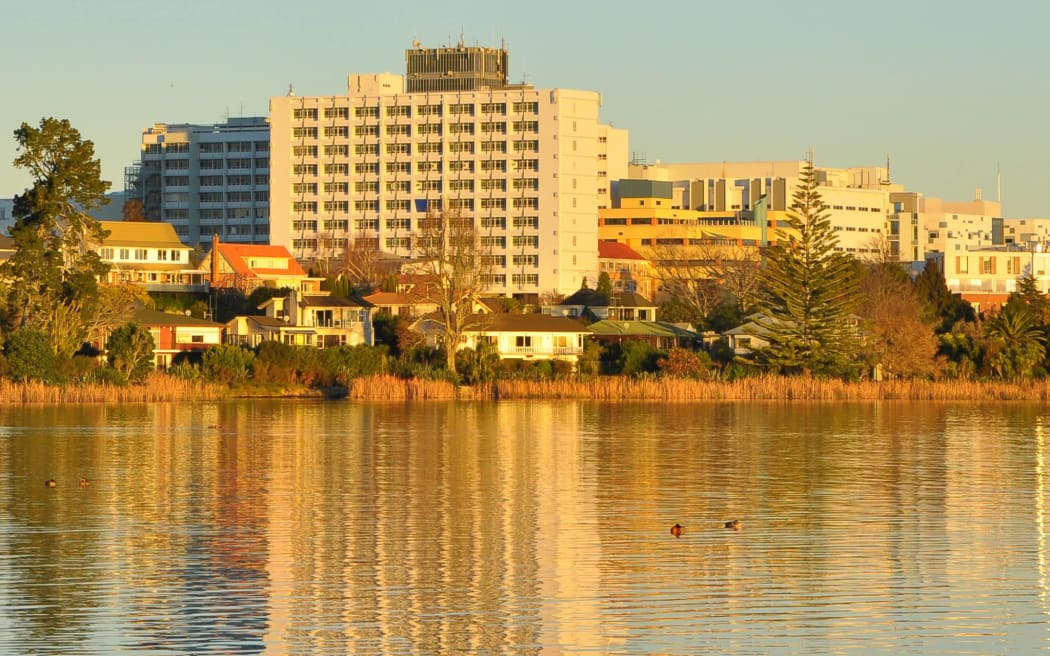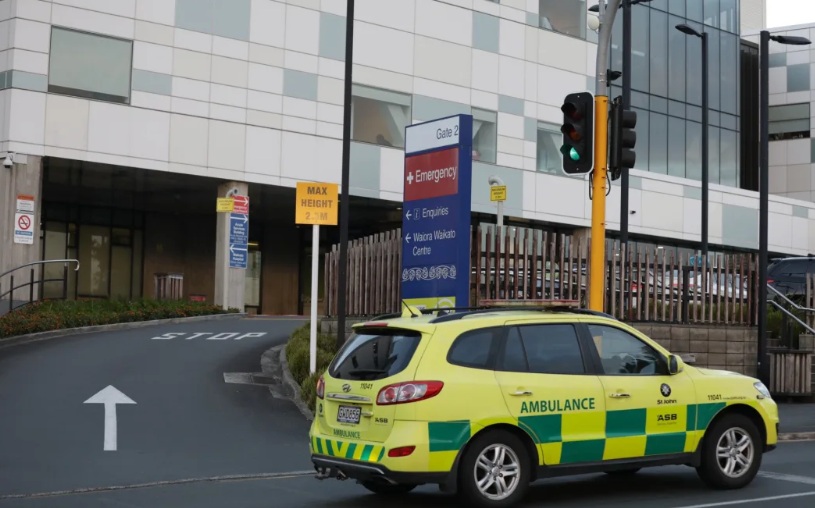
A review has found an 11-year-old girl mistaken for a 20-year-old was admitted to a mental health inpatient ward despite some hospital staff initially noting she "resembled a child and may have a disability".
Health NZ has released findings of its review after the child was mistaken for a mental health patient in Hamilton last month.
The autistic and non-verbal girl was handcuffed, admitted to Waikato Hospital's Henry Bennett Centre and medicated, after she was seen climbing a bridge.
A five-person review panel found police misidentified her, and the hospital accepted that because "it is common for Police to confirm patient identity".
She was restrained and given two doses of intramuscular medication because she declined oral medication, it said.
The medication used was "rarely administered to children" and not the first-line choice for adults - but was given due to a shortage of supply.
There was no cultural support offered to the girl, and disability was not considered beyond the initial assessment, the reviewers found.
The fact she was not admitted to the Emergency Department was described as a "lost opportunity for assessment" which could have led to a different diagnosis.
The Rapid Incident Review Report said "several failings" contributed to the distress and trauma experienced by the young person and their family.
It was released publicly after the panel spent one week reviewing clinical records and relevant Waikato policies and procedures, interviewing relevant staff, speaking with an external review panel and with the family of the 11-year-old.
Eight recommendations made
The panel made eight recommendations, including an apology to the girl and her family.
It recommended a rapid review of international best practice for the identification of unidentified patients, "particularly for people with any type of communication difficulty", to create a national policy.
"This should be done in collaboration with cultural and disability services, and in consultation with the police."

"The scope of this group's work should include developing a checklist for assessment prior to medication restraint, and procedures for monitoring vital signs following sedation in mental health facilities."
It recommended that Health NZ reviews its admission criteria and procedures for admission to psychiatric intensive care units, that it reviews workforce resourcing in the district's mental health inpatient unit, ensures cultural support is offered to mental health patients as early as possible in the admission process.
It recommended that cultural and disability services are engaged "in the actioning of relevant recommendations".
Those recommendations will be converted into an action plan with clear deliverables and timelines within one week, the report said.
Health NZ's response
In a statement, Health New Zealand chief clinical officer Dr Richard Sullivan said staff endeavour to provide high standards of care, and wanted to ensure such an incident did not happen again.
"We recognise this young person and their family's distress. We are continuing to provide appropriate and on-going support," he said.
"We accept all of the review the findings. The review team included several senior clinicians from Health NZ, as well as a panel of external experts to Health NZ, who were extensively involved in reviewing and providing feedback."
Previously, acting Waikato District Commander Superintendent Scott Gemmell told RNZ "identification was of primary concern" when the police took the girl to Waikato Hospital.
"We took a photo of her and we distributed that amongst our staff on one of our distribution lists.
"One of our staff came back with a nomination of a person who was residing in a community based mental health facility approximate ot the Fairfeld bridge."
Police spoke to a carer and sent through a copy of that photograph for identification purposes, he said.
"We did that and the carer did come back to say they thought it was this person as well.
"Based on that knowledge, we went into the emergency department at Waikato Hospital, and based on that information that we have to hand, we believed this to be another person."
Gemmell said the 20-year-old woman was not in a mental health facility at the time of the incident.
About 6pm that evening, a woman reported her 11-year-old daughter missing, and a staff member recognised her as the female picked up on the bridge.













